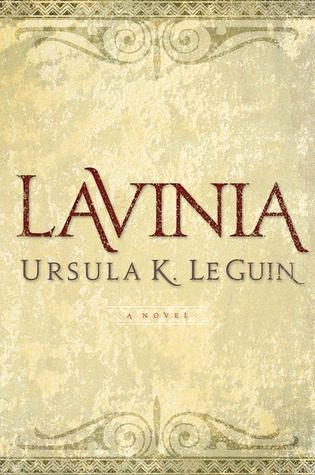Title: Lavinia
Author: Ursula K. Le Guin
First published April 21, 2008
279 pages, Hardcover
ISBN: 9780151014248 (ISBN10: 0151014248)
Rating: 3.83
Overview
Ursula K. Le Guin brings to life the untold story of Lavinia, the daughter of the king in Virgil’s epic poem, The Aeneid.
In a world of ancient Italy, where Rome was nothing but a village, Lavinia grows up in a peaceful and free environment. However, her life takes a drastic turn when suitors come, and her mother wants her to marry the ambitious Turnus.
But destiny has other plans for her, as prophecies declare that she must marry a foreigner, and her husband will not live long. When a fleet of Trojan ships arrives, Lavinia decides to take control of her fate and tells her story, revealing her true love and the cause of a bitter war.
With passion and war, Lavinia’s voice echoes through time, creating a masterpiece that is both generous and beautifully written. Ursula K.
Le Guin’s novel is a must-read for those who want to journey into the world of ancient Italy and discover the untold story of Lavinia.
About the Author
Ursula K. Le Guin was an accomplished writer with an impressive body of work.
She authored twenty-two novels, twelve books for children, six volumes of poetry, and four collections of translation. In addition, she wrote eleven volumes of short stories and four collections of essays.
Le Guin was the recipient of various awards such as the Hugo, Nebula, National Book Award, and PEN-Malamud.
Le Guin was known for her unique treatment of gender and political systems, as well as her portrayal of difference and otherness in any form. Her interest in non-Western philosophies was evident in works like “Solitude.” What made her work particularly intriguing were the societies she imagined, which often blended traits from her extensive knowledge of anthropology.
This expertise was garnered from her upbringing with her father, Alfred Kroeber, a prominent anthropologist.
The Hainish Cycle, a series of books by Le Guin, reflected her father’s experiences as an anthropologist. The series featured characters who were envoys from a humanitarian organization called the Ekumen.
These envoys were sent to explore new and foreign cultures, learn their ways, and form alliances. Le Guin often used the first-person narration to give readers an intimate look into the characters’ experiences.
Le Guin lived in Portland, Oregon, where she continued to write until her passing. Her recent publications included the novel “Lavinia,” an essay collection called “Cheek by Jowl,” and “The Wild Girls.” Her contribution to literature, particularly in the realms of science fiction and fantasy, will continue to inspire readers for generations to come.
Editoral Review
Lavinia, by Ursula K. Le Guin, is a beautifully written novel that explores the life of a young woman who appears briefly in Virgil’s epic poem, The Aeneid.
Le Guin, a pioneer of science fiction and fantasy literature, has created a work of historical fiction that offers a fresh perspective on one of the most celebrated works of ancient literature. Set in ancient Italy during the early days of the Roman Empire, Lavinia tells the story of Lavinia, the daughter of King Latinus.
Though she is destined to marry the Trojan hero Aeneas, she longs for a life of her own choosing. As she struggles to balance her love for Aeneas with her own desires, Lavinia must navigate the complex web of relationships that govern her world.
One of the strengths of Lavinia is Le Guin’s masterful use of language. Her prose is poetic and lyrical, evoking a sense of timelessness that transports the reader to ancient Italy.
She captures the essence of Virgil’s epic poem with a sensitivity that only a writer of Le Guin’s caliber could achieve. The character of Lavinia is well-drawn and complex.
Though she is torn between duty and desire, she remains steadfast in her convictions. Her struggle to find her place in a world that is dominated by men is a theme that will resonate with many readers.
Le Guin’s attention to detail is impeccable. She captures the rhythms of daily life during the time of the Roman Empire and imbues the story with a sense of authenticity.
The setting is lush and vivid, and the descriptions of the landscape are breathtaking. One of the few weaknesses of the novel is its pacing.
At times, the story can feel slow and meandering. However, the exquisite prose and thoughtful characterizations more than make up for any slack in the plot.
Lavinia is a work of historical fiction that will appeal to fans of epic poetry, ancient history, and literary fiction. It is a beautifully crafted novel that offers a fresh perspective on a classic tale.
Le Guin’s writing is truly magical, and Lavinia is another testament to her vast talent. Overall, I highly recommend Lavinia to anyone who appreciates a well-written and thought-provoking work of literature.
Le Guin has created a timeless story that will stay with readers long after they have turned the final page. My rating for Lavinia is four out of five stars.



